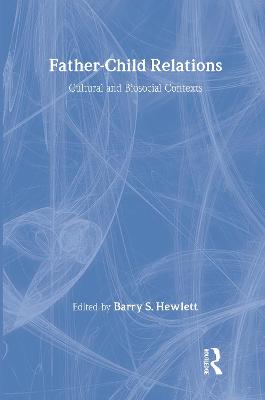Foundations of Human Behavior
1 total work
Due to a greater involvement of American fathers in the direct care of their children in recent years, interest in the impact and nature of the father's role in nurturing children has increased. While studies about fathers in the industrialized, literate West have proliferated, little is known about the role of fathers in the preliterate, non-Western world. This collection examines the diversity of paternal roles found in human cultures among various types of societies that are very peaceful and those that actively engage in warfare as a mode of existence.Father-Child Relations recognizes the importance of understanding both biological and cultural aspects of the father's role. Many of the contributors utilize evolutionary or biosocial models, including those of developmental psychology, to examine the father's role, while others rely upon the symbolic analysis of cultural and social anthropology. One chapter is devoted to male-infant relationships in nonhuman primates, a further largely ignored comparative perspective.The anthropologists who have contributed to this collection are field workers who have lived intimately over significant periods of time with the people about whom they are writing. These research reports from the field have been edited to make them wholly accessible to the non-specialist. The contributors of this volume recognize that biology and ideology are intertwined; both together influence the father's behavior and the effects of his behavior.
